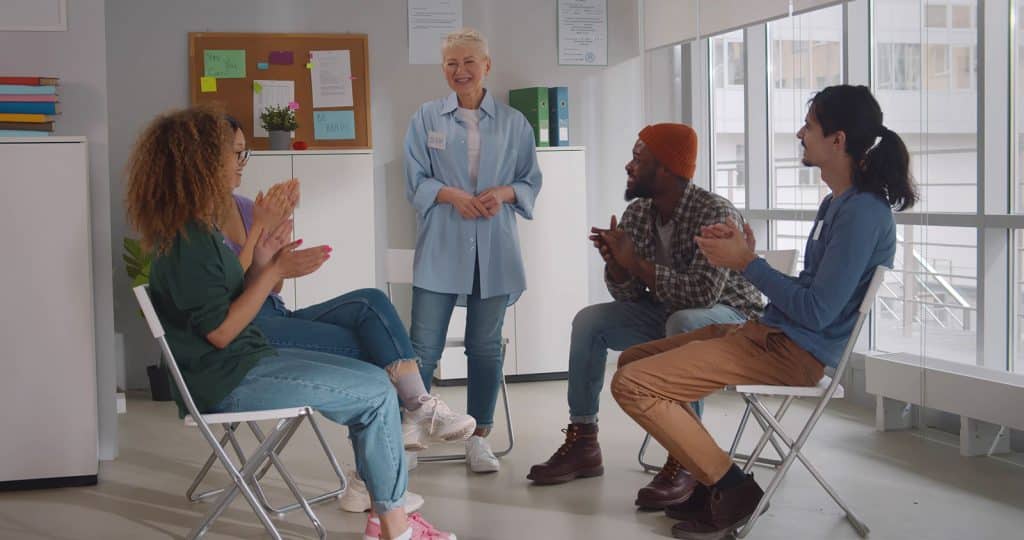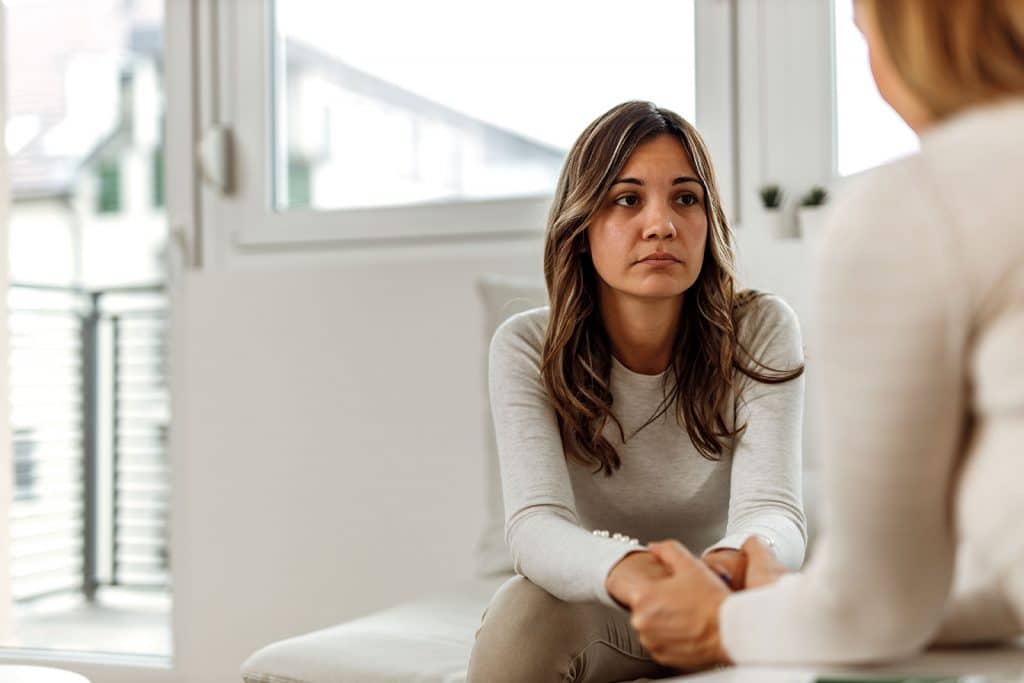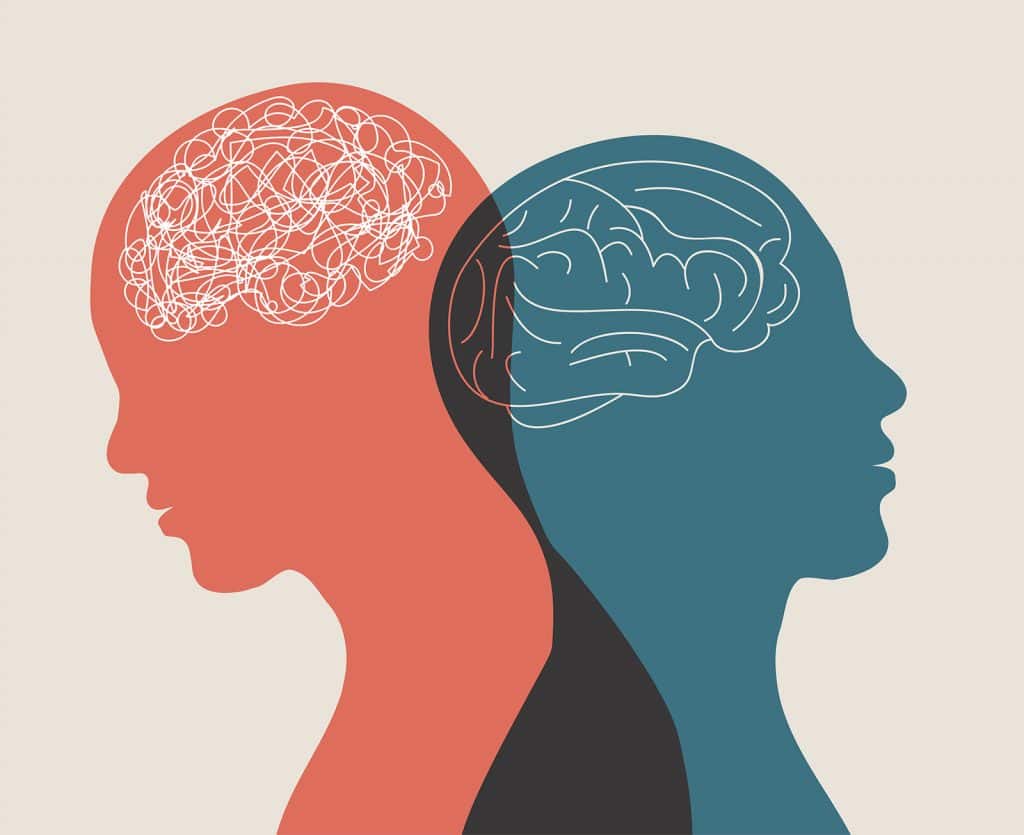Learn What an Intensive Outpatient Program Can Offer You
Intensive outpatient programs (IOPs) treat individuals with substance abuse disorders and mental health conditions. Besides helping people with substance use disorders, IOPs can benefit people with concurrent mental health conditions such as bipolar disorder, depressive disorder, anxiety disorder, eating disorders, and other diagnoses.
Individuals often have more than one disorder. For instance, you might have an opioid use disorder along with a concurrent anxiety disorder. Addiction treatment is usually more science-based in IOPs than it is in inpatient programs.
Patients typically attend IOPs following detoxification and inpatient treatment (residential treatment). These programs are designed for people who no longer need 24/7 care but are not yet ready to reengage with the world at large fully.
Intensive outpatient programs are not suitable for everyone. Patients with milder substance use disorders or less intrusive mental health conditions may need only one or two therapy sessions per week.
IOPs can be a highly effective source of therapeutic and psychosocial support for more severe issues following inpatient treatment. They can provide the bridge that many patients need to navigate back to everyday life.
These programs represent a step forward in the recovery process. Attendance can be on a full-time or half-time basis. Patients typically spend their nights at home and attend the treatment program during the day.
IOPs work best for those with a safe living situation and a supportive family where no active addictions are playing out.

Table of Contents
Comparison of Treatment Options
Inpatient or Residential Care
Residential programs are gentle and safe. Patients receive a lot of individual attention and are well-monitored. The therapies that patients participate in are customized for their personal needs. Inpatient care is ideal for distancing yourself from triggers and stress when you are fresh out of detox.
Partial Hospitalization Programs
If your living situation is supportive and safe, IOP treatment may be an ideal option. If you’re a parent with small children, IOPs allow you to stay connected to your family while actively participating in your recovery.
Standard Outpatient Treatment
An outpatient program is the standard next step after inpatient treatment. Patients can resume their daily living activities while maintaining accountability in the recovery process. You’ll get an opportunity to practice skills you learned as an inpatient while living more or less everyday life.
Sober Living Houses
These facilities typically consist of 8 to 10 residents who share responsibility for making meals, shopping for food, and keeping the house clean. Residents are required to have a job or to be in an outpatient or intensive outpatient program. Sober living homes provide a supportive environment for those who are still not ready to return to their lives.

Intensive Outpatient Programs
IOPs can be similar to partial hospitalization programs (PHP), depending on how they are structured. You can think of them as somewhere between partial hospitalization and standard outpatient treatment.
An IOP might be a good option if you don’t feel ready for a standard outpatient program, but you don’t need the highly structured environment of partial hospitalization either.
IOPs are much more flexible than partial hospitalization programs. With IOPs, you can add just the treatment components you need to a standard outpatient protocol, and that allows you to customize your care more fully. You can supplement your core program with a variety of treatments that vary according to your needs.
IOPs may be the treatment of choice for those with milder substance use disorders or mental health conditions as long as their home environments support recovery.
The relationship between you and your primary therapist will significantly impact the success of your recovery. An excellent primary therapist will be watching and evaluating your progress. If problems develop, they are resolved promptly, keeping participants focused on the goal of recovery instead of on distractions.
What Are the Components of Intensive Outpatient Therapy?
Although IOP programs may vary somewhat, they all follow a primary treatment protocol that offers specific core components:
- Individual counseling
- Group therapy
- A variety of behavioral therapies
- Drug and alcohol monitoring
- Educational opportunities
- Mental health treatment (behavioral health)
- Case management
- Medication management
- Medical treatment
- Pharmacological tools
- 24/7 crisis management
Some intensive outpatient programs offer additional components designed to support and encourage a healthy and substance-free lifestyle:
- Vocational training
- Fitness programs
- Family therapy
- Nutritional counseling
- Art therapy
- Goal attainment strategies
- Relapse prevention techniques

What Are the Benefits of Intensive Outpatient Programs?
IOPs provide more therapy, monitoring, and structure for those who need additional support during the early phases of recovery. The ability to plug into just the therapeutic components you need without adding all of them gives you the freedom to individualize your treatment plan. There are other benefits as well:
Be With Family
Attending an intensive outpatient program is like going to work every day. In fact, during the early stages of treatment, recovery becomes your job.
Besides allowing you to spend evenings and weekends with your family members, a regular schedule gives you the chance to practice functioning in the real world while still receiving strong support from the treatment program and your loved ones.
Many IOPs offer services at different times of the day, and some sessions may take place in the evenings. Scheduling one evening session per week might provide a welcome break if tensions at home are running high.
The flexibility built into the program was designed to accommodate various people who have different schedule constraints.
Build New Relationships
Most people with substance use disorders understand that you can’t get sober or stay sober if you’re going it alone. Part of the recovery process involves building new relationships with like-minded people, and IOPs allow you to create a supportive network with others while you’re still in treatment.

Maintain Your Privacy
When you’re attending an IOP, no one knows where you’re going or what you’re doing. Therefore, you won’t be asked to explain yourself or be questioned by others.
Having a substance use or mental health disorder can make some of us feel embarrassed. With an IOP, HIPAA compliance will keep your privacy safe.
What Does a Typical Week in an IOP Look Like?
IOPs involve between 10 and 12 group and individual therapy sessions every week. Active participation in 12-step support groups is strongly recommended.
You might be expected to visit the treatment facility three or four times per week, and each visit could involve three or four hours of therapy. The design of individual patient treatment protocols is based on each patient’s individual needs.
Most IOPs have a similar treatment approach that’s based on the following principles:
- 12-Step program attendance facilitates the recovery process.
- Cognitive-behavioral therapy is a highly effective treatment for those with substance abuse disorders and mental health issues.
- Motivational therapy teaches participants to set goals and take the necessary steps to achieve those goals.
- Patient interactions with the therapeutic community support systems for the recovery process and are therefore strongly encouraged.
Are you struggling with drug abuse, alcohol addiction, or mental health issues? Don’t give up hope; you can prevail over substances and co-occurring disorders. Call Long Island Treatment Center to learn more about our intensive outpatient treatment program and focused mental health care.
FAQ
How long are IOP programs?

